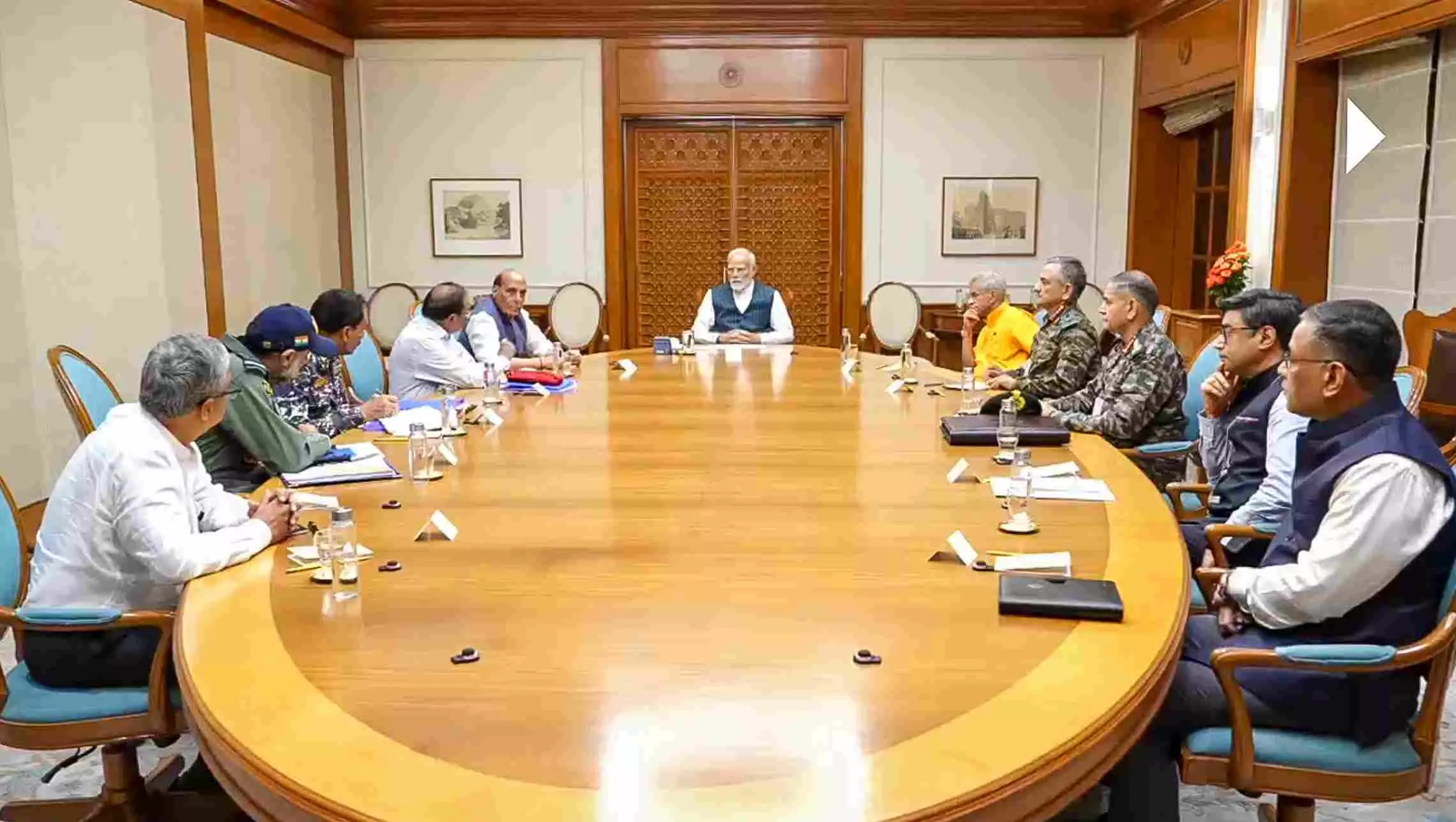
PM Modi chairs high-level meeting; Indus Water Treaty to remain in abeyance
Sources said the ceasefire with Pakistan is a conditional one and there is no change in India’s position on the diplomatic measures against the neighbouring country

Prime Minister Narendra Modi chaired a high-level meeting on Saturday evening with top government functionaries, including Defence Minister Rajnath Singh and External Affairs Minister S Jaishankar, following the announcement that India and Pakistan have reached an understanding to stop military actions.
NSA Ajit Doval, Chief of Defence Staff General Anil Chauhan and all three service chiefs were among those who attended the meeting.
The directors general of military operations (DGMO) of India and Pakistan have agreed to stop all firings and military action on land, air and sea with effect from 5 pm on Saturday, Foreign Secretary Vikram Misri said.
Also read | India, Pakistan reach ceasefire; what happens on May 12?
The brief announcement by the foreign secretary came shortly after US President Donald Trump said India and Pakistan have agreed to a “full and immediate” ceasefire after talks mediated by the US.
‘Conditional’ ceasefire
Meanwhile, sources said the ceasefire with Pakistan is a conditional one and there is no change in India’s position on the diplomatic measures against the neighbouring country, including the suspension of the Indus Waters Treaty.
The move to negotiate a ceasefire, the sources emphasised, was initiated by Pakistan and pointed to a statement by External Affairs Minister S Jaishankar, who underscored that India has an uncompromising stance against terrorism, which will not change.
The Ministry of Defence, in a press conference after the ceasefire, also emphasised that India had not only fended off three big waves of missile and drone attacks by Pakistan but also caused extensive damage to its air defence systems, making defending its airspace unsustainable.
Army’s warning
Significantly, following the development, Indian military warned that every misadventure and future escalation by Pakistan will be responded to with strength and decisive action.
“While we will be adhering to the understanding reached today, we remain fully prepared to defend India's sovereignty,” Commodore Raghu Nair said.
“We remain fully operationally ready to launch whatever operations may be required in defence of the nation,” he said at a media briefing.
Punitive measures
India’s punitive measures against Pakistan including putting the Indus Waters Treaty in abeyance following the Pahalgam terror attack will remain in place, government sources said.
The clarification came after India and Pakistan worked out an understanding on stoppage of firing and military actions, ending days of hostilities between their militaries.
India’s measures announced against Pakistan on April 23 will remain effective, the sources said.
No more blackouts
In another development, authorities in Punjab withdrew orders pertaining to enforcement of blackout on Saturday evening.
Also read: India-Pak ceasefire preceded by Trump's claim, reports of de-escalation
District administrations of Sangrur, Rupnagar and Fazilka withdrew blackout orders while authorities in districts like Jalandhar, Kapurthala and Patiala also cancelled restrictive orders.
Several district authorities had earlier decided to enforce blackout on Saturday evening in the wake of conflict between India and Pakistan.
(With agency inputs)

